1. Overview
Gabon, officially the Gabonese Republic, is a country located on the Atlantic coast of Central Africa, straddling the equator. It is bordered by Equatorial Guinea to the northwest, Cameroon to the north, the Republic of the Congo to the east and south, and the Gulf of Guinea to the west. The nation's geography is characterized by coastal plains, mountainous regions such as the Cristal Mountains and the Chaillu Massif, and savanna in the east. Approximately 89% of its land area is covered by forests, contributing to its rich biodiversity. Libreville is its capital and largest city.
Historically, Gabon was inhabited by Pygmy peoples, followed by Bantu migrations. European contact began in the 15th century, leading to French colonization in the late 19th century. Gabon gained independence from France on August 17, 1960. Post-independence politics were dominated by Léon M'ba, followed by a long period under Omar Bongo Ondimba (1967-2009) and then his son, Ali Bongo Ondimba (2009-2023). This era saw the establishment of a dominant-party state, though a multi-party system was introduced in the early 1990s. A military coup in August 2023 ended the Bongo family's rule, ushering in a transitional government.
Gabon's economy has historically been reliant on its abundant natural resources, particularly petroleum, which accounts for a significant portion of its GDP and exports. Other important sectors include manganese mining and forestry. Despite a relatively high GDP per capita for Sub-Saharan Africa, wealth distribution remains a significant challenge, with considerable portions of the population experiencing poverty. Efforts towards economic diversification and sustainable development are ongoing.
Socially, Gabon is composed of numerous ethnic groups, with French as the official language. Christianity is the predominant religion. The country has made efforts in environmental conservation, notably by establishing a network of national parks covering over 10% of its territory. Culturally, Gabon possesses rich oral traditions, distinctive arts, and a developing Francophone literary scene.
2. History
The history of Gabon spans from its early inhabitants through colonization, independence, and its contemporary political landscape, marked by long presidential tenures and recent political transitions.
2.1. Pre-colonial Era
The earliest inhabitants of the area now known as Gabon were Pygmy peoples. Starting around the 14th century, migrating Bantu-speaking groups began to settle in the region, gradually absorbing or displacing many of the Pygmy populations. Various tribal states and kingdoms formed over time, with distinct social structures and interactions. By the 18th century, a Myènè-speaking kingdom known as the Kingdom of Orungu had emerged. It became a significant trading center, particularly involved in the slave trade. The kingdom's power and influence declined with the abolition of the slave trade in the 1870s. Before extensive European contact, societies in Gabon were organized around kinship groups and village communities, with diverse cultural practices and political systems.
2.2. French Colonial Rule
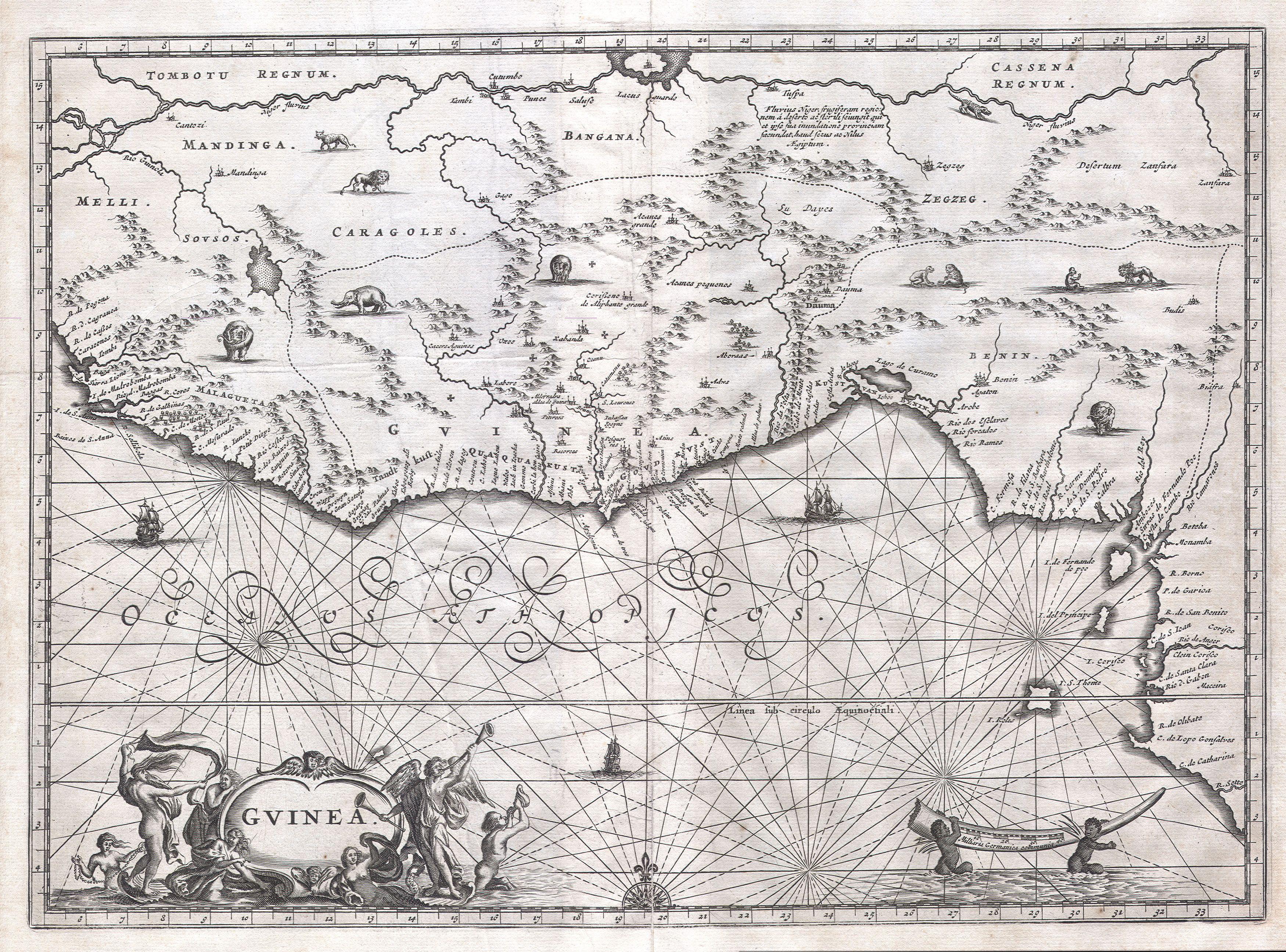
European contact with the Gabonese coast began with Portuguese navigators in 1470. The name "Gabon" originates from the Portuguese word "Gabão," meaning "cloak," which was said to describe the shape of the estuary of the Komo River near present-day Libreville. Over the following centuries, Dutch, British, and French traders also arrived, primarily interested in slaves and ivory.
French influence grew significantly in the 19th century. In 1849, the French established Libreville as a settlement for freed slaves, creating a strategic foothold. Explorer Pierre Savorgnan de Brazza led his first mission to the Gabon-Congo area in 1875, founding the town of Franceville in 1880 and later serving as a colonial governor. France officially occupied the territory in 1885, a claim recognized internationally during the Berlin Conference.
In 1905, Gabon was separated from the French Congo to become a distinct colony, and in 1910, it was incorporated as one of the four territories of French Equatorial Africa, a federation that lasted until 1958. French colonial policy until the 1920s was largely extractive, managed through concessionary companies with little effort towards assimilation or development for the local population. Albert Schweitzer's medical and missionary work in Lambaréné took place during this period. From the 1930s, the colonial government initiated some development, but progress in economic and educational spheres remained slow.
During World War II, Gabon, along with other French Equatorial African colonies, quickly declared support for Free France. The Allies invaded Gabon in November 1940 to oust the pro-Vichy France colonial administration.
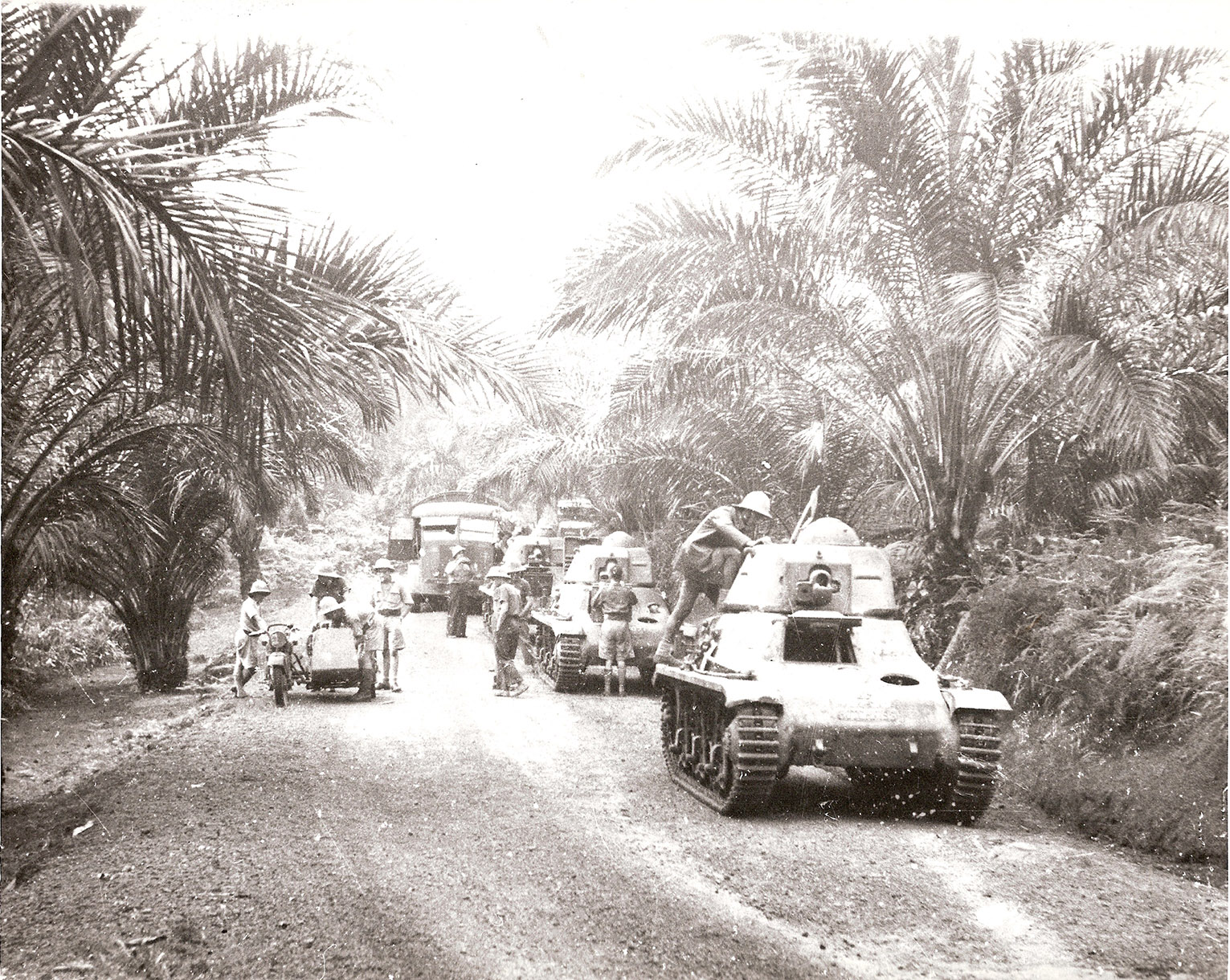
In 1946, Gabon gained representation in the French Parliament, and local territorial assemblies were established. Two major political factions emerged: the Gabon Democratic Party (PDG), led by Léon M'ba, which was pro-French and affiliated with the African Democratic Rally; and the Gabonese Democratic and Social Union (UDSG), led by Jean-Hilaire Aubame, which was more critical of French influence and leaned towards socialism. M'ba strongly opposed the idea of a federation for French Equatorial Africa, fearing that Gabon's relative wealth would be exploited by poorer territories, and was instrumental in its dissolution. In 1958, following a referendum, Gabon became an autonomous republic within the French Community, with M'ba as head of government.
2.3. Post-independence Era
Gabon achieved full independence from France on August 17, 1960. The post-independence era has been marked by significant political and economic developments, including long periods of single-family rule and, more recently, a military coup.
2.3.1. Léon M'ba Government (1960-1967)
Léon M'ba became Gabon's first president in 1961, with Omar Bongo Ondimba (then Albert-Bernard Bongo) as his vice president. M'ba's presidency was characterized by increasing authoritarianism. His government suppressed the press, banned political demonstrations, curtailed freedom of expression, and gradually excluded other political parties from power. The constitution was amended along French lines to consolidate power in the presidency. French interests, particularly in forestry, heavily supported M'ba's rise.
In January 1964, when M'ba dissolved the National Assembly to institute one-party rule, a military coup attempted to oust him and restore parliamentary democracy, with Jean-Hilaire Aubame slated to lead. However, French paratroopers intervened within 24 hours at M'ba's request, restoring him to power. After several days of fighting, the coup ended, and opposition leaders were imprisoned, despite widespread protests and riots. The French military presence, stationed at Camp de Gaulle outside Libreville, underscored France's commitment to M'ba's government. This intervention highlighted the challenges to democratic consolidation and the significant influence of the former colonial power in Gabon's early nation-building efforts. M'ba remained in power until his death in 1967.
2.3.2. Omar Bongo Government (1967-2009)
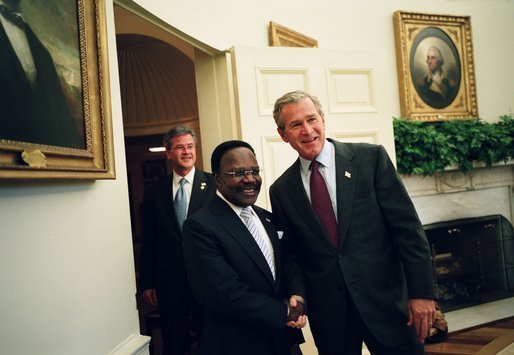
Upon Léon M'ba's death in November 1967, Vice President Albert-Bernard Bongo (later Omar Bongo Ondimba) assumed the presidency. His rule, spanning over 41 years, was one of the longest in African history and profoundly shaped Gabon. In March 1968, Bongo declared Gabon a one-party state, dissolving M'ba's Gabonese Democratic Bloc (BDG) and establishing the Gabonese Democratic Party (PDG) as the sole legal party. He invited all Gabonese, regardless of previous political affiliation, to join the PDG, aiming to create a national movement to support his development policies and submerge past regional and tribal rivalries.
Bongo was elected president in February 1975. In April 1975, the position of vice president was abolished and replaced by that of prime minister, who had no right to automatic succession. He was re-elected in December 1979 and November 1986 to seven-year terms. Bongo's regime benefited greatly from Gabon's burgeoning oil wealth, which fueled economic growth and allowed him to build a vast patronage network, often described as part of Françafrique, maintaining close ties with France. This system, while ensuring stability for decades, also led to significant corruption and an unequal distribution of resources, hindering broader democratic development and concentrating power within a small elite.
In the early 1990s, economic discontent and a desire for political liberalization led to widespread demonstrations and strikes by students and workers. In response, Bongo engaged in negotiations, made wage concessions, and promised political reforms. A national political conference was held in March-April 1990, attended by the PDG and 74 other political organizations. The conference approved reforms including the creation of a national Senate, decentralization of the budgetary process, freedom of assembly and press, and the abolition of exit visa requirements.
Bongo resigned as PDG chairman and formed a transitional government headed by a new Prime Minister, Casimir Oyé-Mba. This government, known as the Gabonese Social Democratic Grouping (RSDG), drafted a provisional constitution in May 1990 providing for a bill of rights and an independent judiciary, though it retained strong executive powers for the president. This constitution came into force in March 1991, legalizing opposition parties. The first multiparty National Assembly elections in nearly 30 years were held in September-October 1990, with the PDG winning a majority. Despite these reforms, two coup attempts were uncovered and aborted in September 1990.
Bongo won the 1993 presidential election with 51% of the vote, an outcome disputed by opposition candidates, leading to civil disturbances. The Paris Accords of November 1994 aimed to resolve the political tensions by including some opposition figures in a government of national unity, but this arrangement eventually broke down. PDG maintained its dominance in subsequent legislative elections. Bongo was re-elected in December 1998, an election some international observers deemed representative despite irregularities, and again in November 2005 for his sixth term, amid opposition claims of fraud. His long rule, while providing a degree of stability and economic development primarily through oil revenues, was criticized for its impact on democratic institutions, human rights, and equitable resource distribution. Omar Bongo Ondimba died in office on June 8, 2009.
2.3.3. Ali Bongo Ondimba Government (2009-2023)
Following the death of Omar Bongo, Rose Francine Rogombé, President of the Senate, became interim president. Presidential elections were held on August 30, 2009. Ali Bongo Ondimba, Omar Bongo's son and a prominent figure in the ruling PDG, was declared the winner among 18 candidates. His inauguration took place on October 16, 2009. The election results were contested by some opposition figures, leading to protests, particularly in Port-Gentil, where violent demonstrations resulted in four deaths and significant property damage, including attacks on the French Consulate.
Ali Bongo's presidency aimed to diversify Gabon's oil-dependent economy through a program called "Gabon Emergent," focusing on "Green Gabon" (environmental sustainability), "Service Gabon" (developing service industries), and "Industrial Gabon." Policies included a ban on raw timber exports to encourage local processing, a government-wide census, and changes to the workday.
In January 2011, opposition leader André Mba Obame controversially declared himself president, selecting his own cabinet and seeking refuge at the UN headquarters. The government dissolved Mba Obame's party, and AU Chairman Jean Ping condemned the action.
The 2016 presidential election was highly contentious. Ali Bongo was declared the winner by a narrow margin over opposition candidate Jean Ping. The results sparked widespread protests and violent repression, with reports of 50 to 100 deaths and numerous arrests. International observers criticized irregularities, particularly unusually high turnout in some districts. The European Parliament issued resolutions calling for an investigation into human rights violations.
In January 2019, a group of soldiers attempted a coup d'état while President Ali Bongo was abroad receiving medical treatment. The attempt quickly failed.
Despite political challenges, Gabon achieved some international milestones during Ali Bongo's tenure. In June 2021, it reportedly became the first African country to receive payments for reducing carbon emissions by protecting its rainforest. In June 2022, Gabon, along with Togo, joined the Commonwealth of Nations.
Ali Bongo's rule faced ongoing criticism regarding governance, human rights, and the continued concentration of wealth and power. Social discontent persisted, fueled by economic hardship for many despite the nation's resource wealth.
2.3.4. 2023 Coup d'état and Transitional Government
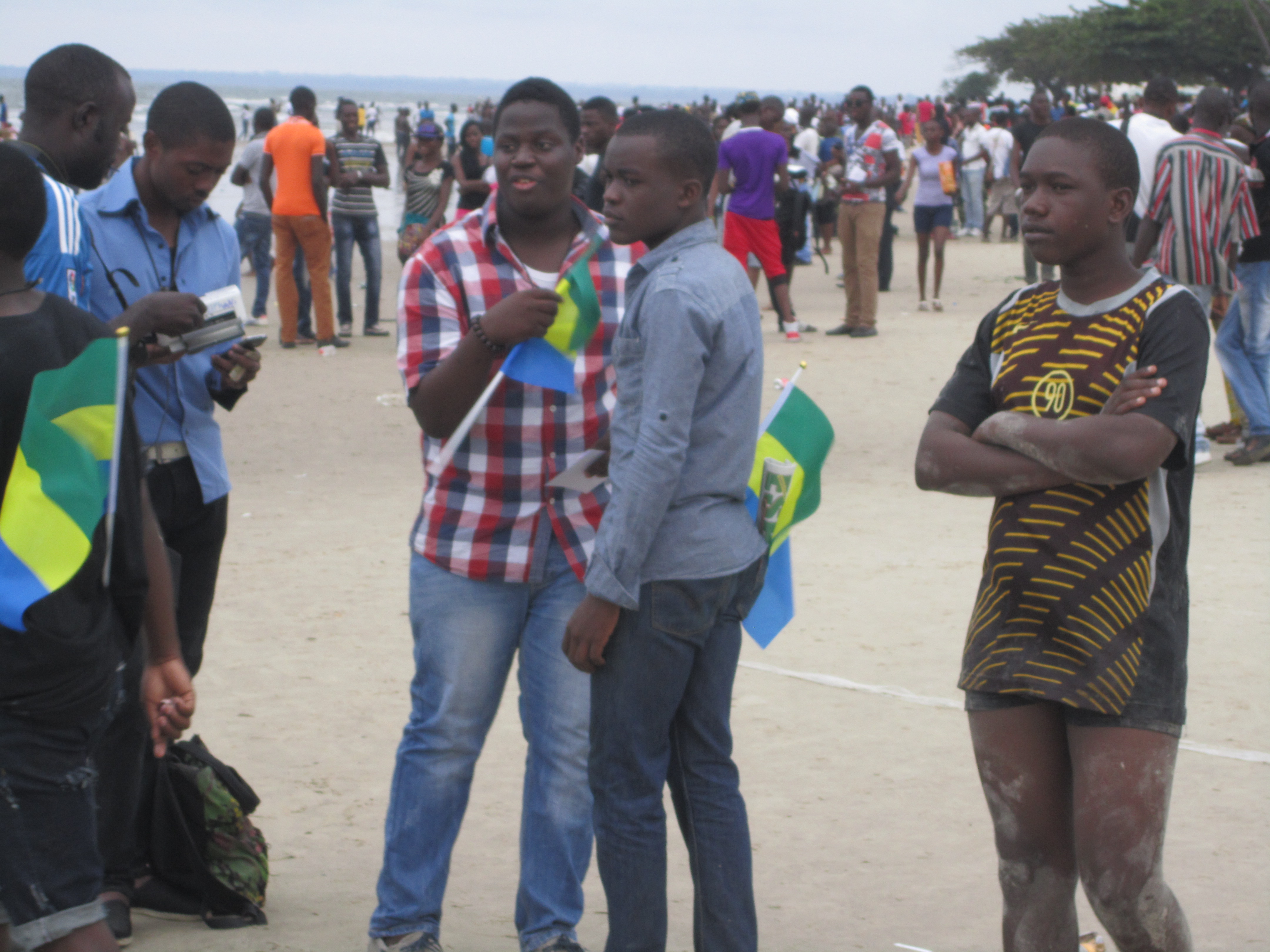
On August 30, 2023, shortly after official results declared President Ali Bongo Ondimba the winner of a third term in the general election held on August 26, a group of senior military officers announced on state television that they had seized power. The officers, representing the "Committee for the Transition and Restoration of Institutions" (CTRI), stated that the election lacked credibility and announced the cancellation of the election results. They also declared the dissolution of all state institutions, including the government, parliament, constitutional court, and electoral body, and announced the closure of the country's borders.
The coup leaders, who claimed to represent all security and defense forces of Gabon, cited "irresponsible, unpredictable governance" that had led to a "continuous degradation of social cohesion, risking pushing the country into chaos." Ali Bongo Ondimba was placed under house arrest.
On August 31, 2023, General Brice Oligui Nguema, head of the elite Republican Guard and a cousin of Ali Bongo, was named as the country's transitional leader. He was formally sworn in as interim president on September 4, 2023, vowing to hold "free, transparent, credible and peaceful elections" to restore civilian rule, but did not specify a timeline. The coup ended the Bongo family's 56-year rule over Gabon.
The coup was met with condemnation from international bodies such as the African Union (which suspended Gabon's membership) and the United Nations, as well as countries like France. However, it was reportedly celebrated by many Gabonese citizens in the streets of Libreville and other cities. The transitional government began a series of consultations with various political and civil society groups to map out a transition period. In November 2024, a referendum on a new constitution aimed at reforming the country's government was approved. The coup in Gabon was one of several in West and Central Africa since 2020, raising concerns about democratic backsliding in the region. The implications for Gabon's democratic processes, human rights, and regional stability remain a key area of analysis.
3. Politics
Gabon is a presidential republic. Following the 2023 coup d'état, the country is currently under a transitional military government led by the Committee for the Transition and Restoration of Institutions (CTRI). The 1991 constitution, though suspended or subject to change by the transitional authorities, traditionally provided the framework for a multi-party system with a strong executive. The political landscape has historically been dominated by the Gabonese Democratic Party (PDG).
Prior to the 2023 coup, the political system faced criticism regarding democratic practices, electoral integrity, and civil liberties, particularly concerning the long tenure of the Bongo family.
3.1. Government Structure
Under the 1991 constitution (revised in 1975, 1991, and 2003), Gabon operated as a presidential republic. The President was the head of state, elected by universal suffrage for a seven-year term. A 2003 constitutional amendment removed presidential term limits. The President held significant powers, including appointing and dismissing the Prime Minister, the cabinet, and judges of the Supreme Court. The President could also dissolve the National Assembly, declare a state of siege, delay legislation, and conduct referendums.
The Prime Minister was the head of government, responsible for coordinating the work of the Cabinet (Council of Ministers). However, executive authority was heavily concentrated in the presidency.
Following the 2023 coup, General Brice Oligui Nguema assumed the role of interim president and head of the transitional government. The traditional checks and balances are currently suspended or under review by the CTRI.
3.2. Parliament
Prior to the 2023 coup, Gabon had a bicameral Parliament consisting of:
- The National Assembly (Assemblée NationaleNational AssemblyFrench): The lower house, composed of 143 members (previously 120) directly elected by popular vote for five-year terms. It was the principal legislative body.
- The Senate (SénatSenateFrench): The upper house, created by the 1990-1991 constitutional revisions and first convened after the 1997 local elections. It was composed of 102 members (previously 91) elected by municipal and regional councils for six-year terms. The President of the Senate was constitutionally designated as the successor to the President in case of a vacancy.
The functions of Parliament included passing legislation, overseeing government actions, and approving the budget. However, the effectiveness of parliamentary oversight and true representation was often questioned, given the dominance of the executive branch and the PDG. Following the 2023 coup, parliamentary functions were dissolved by the CTRI, with plans for new institutional frameworks to be established during the transition period.
3.3. Major Political Parties and Elections
For much of its post-independence history, Gabon operated as a one-party state under the Gabonese Democratic Party (PDG), founded by Omar Bongo Ondimba in 1968. A multi-party system was introduced in the early 1990s following widespread protests and a national conference. Despite this, the PDG remained the dominant political force, consistently winning presidential and legislative elections, often amidst allegations of irregularities and fraud from opposition parties.
Major opposition parties have included the National Woodcutters' Rally (RNB), the Gabonese Progress Party (PGP), and the Democratic and Republican Alliance (ADERE). In the lead-up to the 2016 presidential election, a significant opposition coalition formed around Jean Ping.
Presidential elections were often flashpoints for political tension. The 1993 election, won by Omar Bongo, led to disturbances and the Paris Accords. The 2009 election, which brought Ali Bongo Ondimba to power, was also marred by protests. The 2016 presidential election was particularly controversial, with Ali Bongo declared winner by a very narrow margin amidst widespread accusations of fraud, leading to violent protests and a crackdown by security forces. International observers noted irregularities, and the European Parliament called for investigations.
The 2023 general election, which saw Ali Bongo declared winner for a third term, was the immediate trigger for the military coup that ousted him. The coup leaders cited a lack of credibility in the election as a key reason for their intervention. The transitional government has promised to organize new elections, but the future landscape of political parties and electoral integrity remains to be defined.
The history of elections in Gabon has been marked by challenges to political competition, transparency, and fairness, significantly impacting the development of robust democratic institutions.
3.4. Administrative Divisions
Gabon is divided into nine provinces (provincesprovincesFrench), which are further subdivided into 50 departments (départementsdepartmentsFrench). The President traditionally appoints provincial governors, prefects (for departments), and sub-prefects. Each province has a capital city.
The nine provinces are:
# Estuaire (Capital: Libreville; also location of Akanda and Owendo)
# Haut-Ogooué (Capital: Franceville; also location of Moanda)
# Moyen-Ogooué (Capital: Lambaréné)
# Ngounié (Capital: Mouila)
# Nyanga (Capital: Tchibanga)
# Ogooué-Ivindo (Capital: Makokou)
# Ogooué-Lolo (Capital: Koulamoutou)
# Ogooué-Maritime (Capital: Port-Gentil)
# Woleu-Ntem (Capital: Oyem)
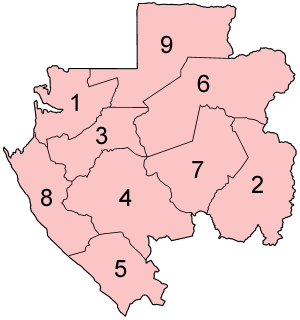
Libreville, the national capital, is located in Estuaire Province and is the country's largest urban and administrative center. Port-Gentil in Ogooué-Maritime is the economic hub, particularly for the oil industry. Franceville in Haut-Ogooué is another significant urban center and historically important due to its mining activities and political connections. The administrative divisions facilitate local governance and the implementation of national policies, though power has historically been centralized.
4. Foreign Relations
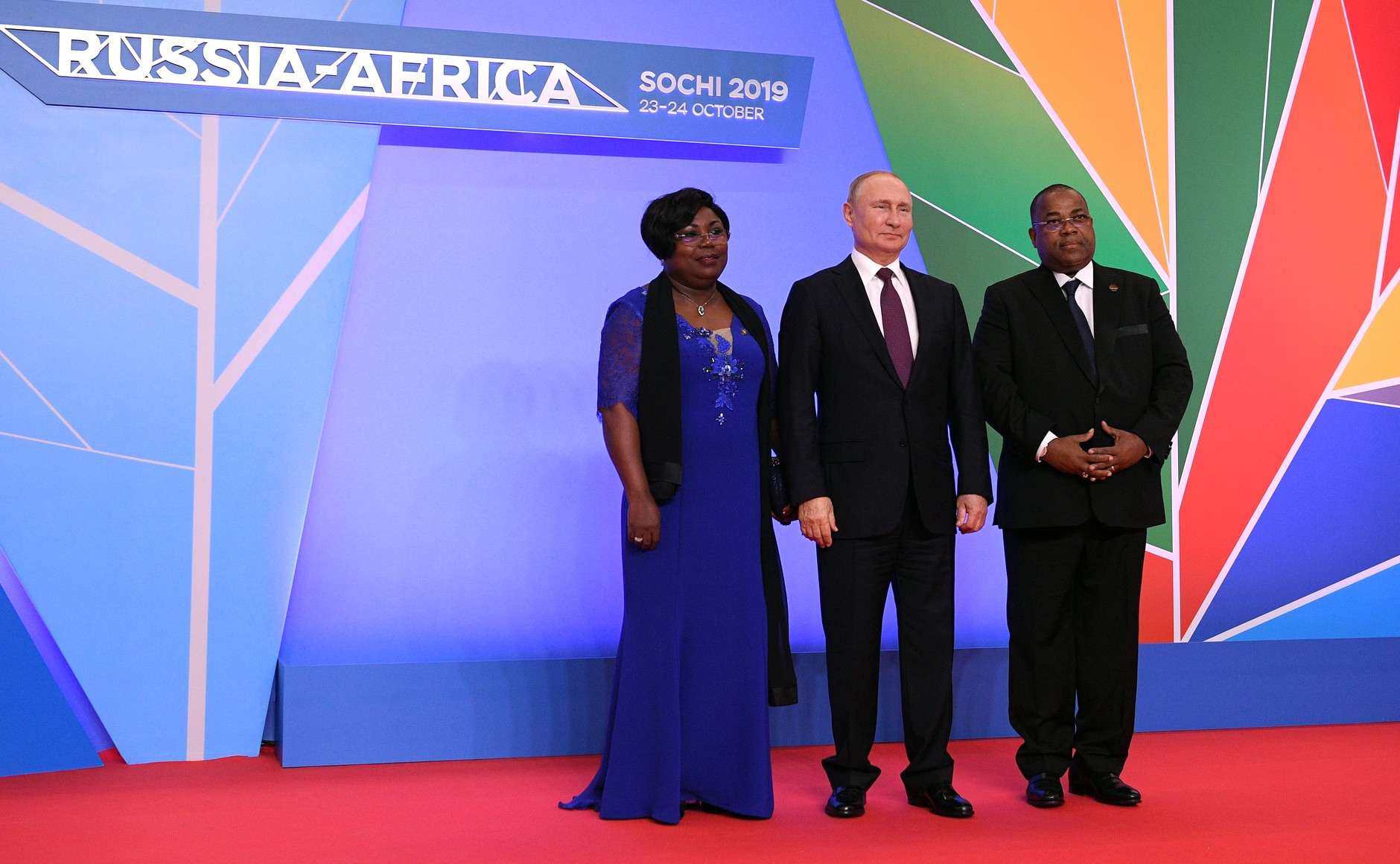
Since independence, Gabon has generally followed a nonaligned policy, advocating for dialogue in international affairs and often recognizing both sides of divided countries. In intra-African affairs, it has traditionally espoused development through evolution rather than revolution and favored regulated private enterprise. Gabon has been involved in mediation efforts in several regional conflicts, including those in Chad, the Central African Republic, Angola, the Republic of the Congo, the Democratic Republic of the Congo, and Burundi. Former President Omar Bongo was particularly active in these efforts, and in December 1999, his mediation helped lead to a peace accord in the Republic of the Congo (Brazzaville).
Gabon's foreign policy has historically prioritized close ties with France, its former colonial power. However, it has also sought to diversify its partnerships. The country is a proponent of environmental conservation on the international stage and has sought to leverage its vast forest resources for climate finance. Its stance on human rights has faced scrutiny, particularly during periods of political repression. Following the 2023 coup, the transitional leader, General Brice Oligui Nguema, assured American and French leaders in 2024 that Gabon would remain an ally of the West, as part of a broader plan to address the country's debt crisis.
4.1. Relations with Major Countries
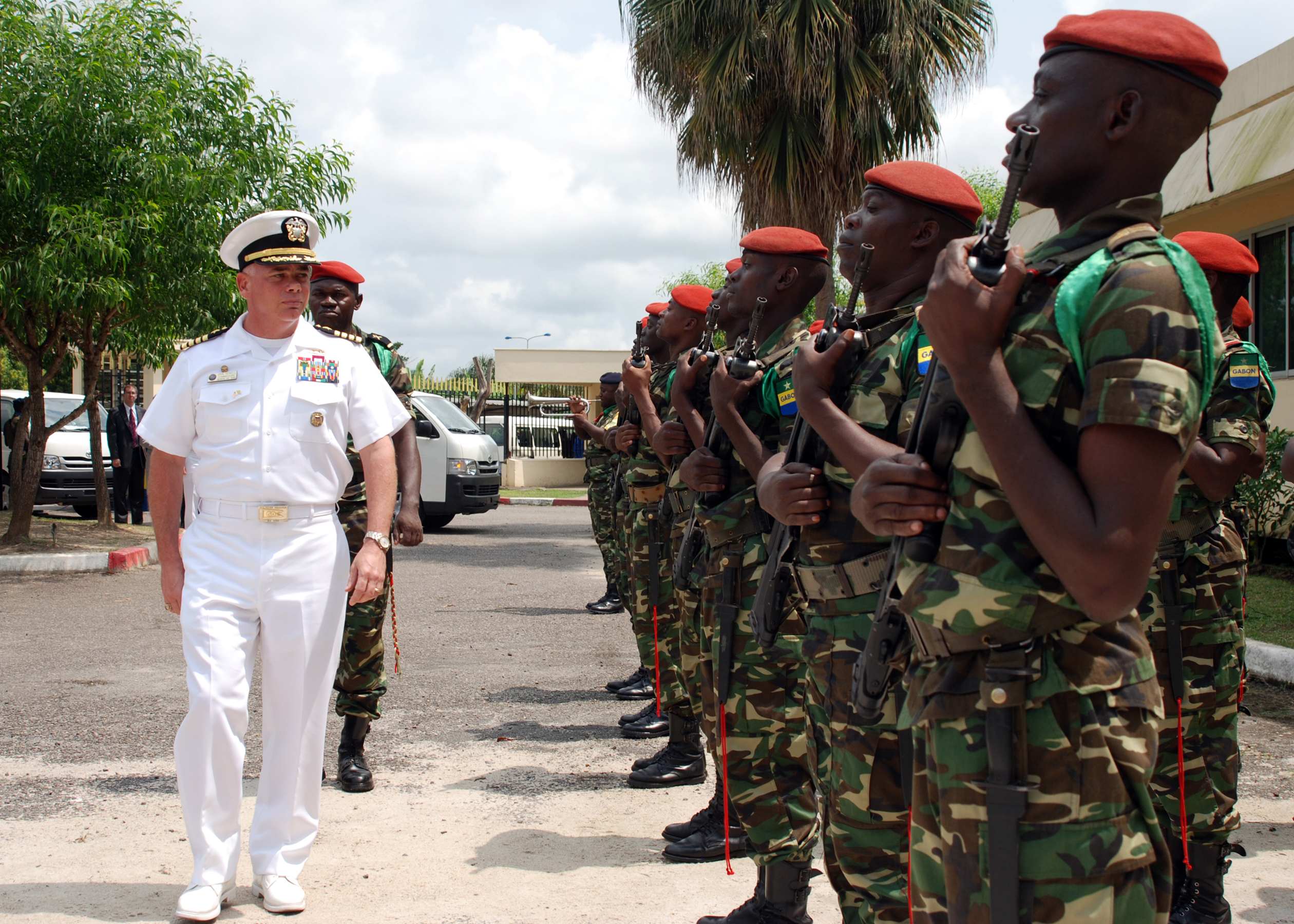
- France: Relations with France have been historically deep and multifaceted, covering political, economic, military, and cultural spheres. France has been a major trading partner, investor, and aid provider. French military presence has also been a feature, notably intervening in 1964 to restore President M'ba. While the relationship remains significant, Gabon has sought to assert more independence in recent years. France was a key destination for former President Ali Bongo's medical treatment and a country where the Bongo family held significant assets. Following the 2023 coup, France condemned the takeover but also has strategic interests to maintain.
- United States: The U.S. and Gabon have engaged in economic and security cooperation. The U.S. has interests in Gabon's oil sector and its role in regional stability and conservation. Military cooperation has included programs like the Africa Partnership Station.
- China: China has become an increasingly important economic partner for Gabon, particularly in infrastructure development, resource extraction (oil, timber, minerals), and trade. Chinese investment has grown significantly, though this has also raised concerns about debt sustainability and environmental impacts.
- Other Nations: Gabon maintains diplomatic relations with numerous other countries. As an oil producer, it engages with other oil-producing and consuming nations. Its membership in various international organizations also facilitates bilateral ties.
4.2. Activities in International Organizations
Gabon is an active member of numerous international and regional organizations, reflecting its engagement with global and African affairs. Key memberships include:
- United Nations (UN): Gabon has been a UN member since its independence and participates in various UN specialized agencies and programs. It was elected as a non-permanent member of the United Nations Security Council for the term January 2010 through December 2011, holding the rotating presidency in March 2010.
- African Union (AU): As a founding member of the Organisation of African Unity (OAU), Gabon transitioned to become a member of its successor, the AU. It participates in AU initiatives for peace, security, and development on the continent. Following the 2023 coup, the AU suspended Gabon's membership.
- Organisation of Islamic Cooperation (OIC): Despite having a Muslim minority, Gabon is a member of the OIC, reflecting its engagement with the Islamic world.
- Commonwealth of Nations: Gabon, along with Togo, joined the Commonwealth in June 2022, becoming one of the few member states without historic colonial ties to the United Kingdom. This move was seen as an effort to diversify its international partnerships. Following the 2023 coup, Gabon was partially suspended, meaning it cannot attend Commonwealth leaders' meetings.
- Organization of the Petroleum Exporting Countries (OPEC): Gabon initially joined OPEC in 1975 but withdrew in 1996. It rejoined the organization in 2016, reflecting the importance of oil to its economy.
- Economic Community of Central African States (ECCAS/CEEAC): Gabon is a key member of this regional economic community aimed at promoting economic integration among Central African states.
- Central African Economic and Monetary Community (CEMAC): As part of UDEAC/CEMAC, Gabon shares a common currency, the CFA franc, and participates in regional economic and monetary policy coordination through the Bank of Central African States.
- Francophonie: Gabon is a member of the Organisation internationale de la Francophonie, reflecting its strong linguistic and cultural ties with France and other French-speaking countries.
- It is also a member of the World Bank, the International Monetary Fund (IMF), and the Non-Aligned Movement.
5. Military
The Gabonese Armed Forces (Forces Armées GabonaisesGabonese Armed ForcesFrench) are responsible for the territorial defense of Gabon and participation in peacekeeping operations. The military is a professional force, relatively small but well-equipped for its size, with a total strength of about 5,000 personnel. It is structured into several branches:
- Army (Armée de TerreArmyFrench): The land component, responsible for ground operations and border security.
- Navy (Marine NationaleNational NavyFrench): Responsible for maritime security in Gabon's territorial waters in the Gulf of Guinea, including combating piracy and illegal fishing.
- Air Force (Armée de l'AirAir ForceFrench): Provides air support, transport, and surveillance capabilities.
- National Gendarmerie: A military force with law enforcement duties, particularly in rural areas and often operating under the Ministry of Defense. It plays a role in internal security.
- Republican Guard: An elite unit, historically responsible for the security of the president and key state institutions. General Brice Oligui Nguema, leader of the 2023 coup, was the commander of the Republican Guard. This unit is distinct from the regular police force.
The primary missions of the Gabonese Armed Forces include defending national sovereignty, protecting territorial integrity, contributing to regional security, and participating in international peacekeeping missions. Gabon has received military training and equipment from various partners, historically primarily France, but also from countries like the United States and China. The defense budget reflects the country's commitment to maintaining a capable, albeit small, military force. The armed forces played a central role in the 2023 coup d'état.
6. Geography
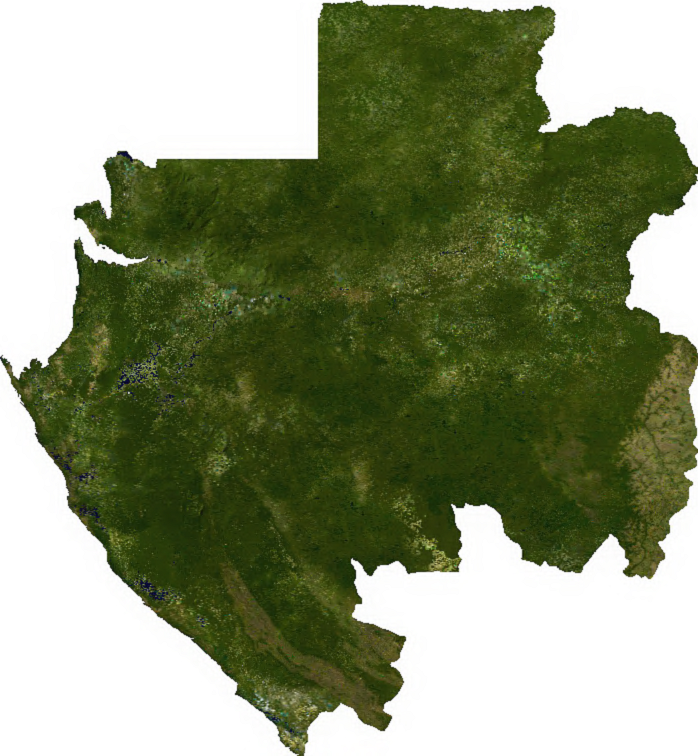

Gabon is situated on the Atlantic coast of Central Africa, directly on the equator. It lies between latitudes 3°N and 4°S, and longitudes 8°E and 15°E. The country has a total area of nearly 104 K mile2 (270.00 K km2). It is bordered by Equatorial Guinea to the northwest, Cameroon to the north, and the Republic of the Congo to the east and south. The Gulf of Guinea lies to its west. The capital city, Libreville, is located on the coast. Gabon's natural environment is dominated by extensive tropical rainforest, which covers approximately 89.3% of its land area, making it one of the most forested countries globally.
6.1. Topography and Geology
Gabon's topography can be divided into three main regions:
1. Coastal Plains: These plains stretch along the Atlantic coast, varying in width from 12 mile (20 km) to 186 mile (300 km). This region includes numerous lagoons and estuaries, including the Muni River estuary on the border with Equatorial Guinea, which features Central African mangroves. The coastal plains are part of the World Wildlife Fund's Atlantic Equatorial coastal forests ecoregion.
2. Mountainous Interior: Inland from the coastal plains, the terrain rises into mountainous areas. Notable ranges include the Cristal Mountains (Monts de Cristal) northeast of Libreville and the extensive Chaillu Massif in the central part of the country, which contains Mont Iboundji, one of Gabon's highest points at 5.2 K ft (1.57 K m).
3. Eastern Savanna: In the easternmost part of the country, the dense forest gives way to savanna landscapes.
Geologically, Gabon is primarily composed of Archaean and Palaeoproterozoic igneous and metamorphic basement rock, belonging to the stable continental crust of the Congo Craton. Some of these rock formations are over 2 billion years old. These ancient rocks are, in places, overlain by marine carbonate, lacustrine, and continental sedimentary rocks. Unconsolidated sediments and soils formed in the last 2.5 million years during the Quaternary period cover some areas. The rifting of the supercontinent Pangaea created rift basins that subsequently filled with sediments, leading to the formation of hydrocarbon deposits, which are the basis of Gabon's oil industry.
A unique geological feature is the Oklo reactor zones, natural nuclear fission reactors that were active about two billion years ago. These sites were discovered during uranium mining operations in the 1970s.
6.2. Climate
Located on the equator, Gabon has a hot and humid equatorial climate. Average annual temperatures are typically high, ranging from 77 °F (25 °C) to 86 °F (30 °C), with minimal seasonal variation in temperature. Humidity is consistently high throughout the year.
The climate is characterized by two main seasons:
- Rainy Season: There are two rainy seasons. The long rainy season typically lasts from mid-September to mid-May, with a short, less intense dry period often occurring around December/January.
- Dry Season: The main dry season occurs from mid-May to mid-September. A shorter dry season occurs from mid-December to mid-February.
Annual precipitation is abundant, generally ranging from 0.1 K in (1.50 K mm) to 0.1 K in (2.50 K mm) across the country, with some coastal areas receiving even more. Libreville, for example, receives around 0.1 K in (2.51 K mm) of rain annually. The heavy rainfall supports the extensive tropical rainforests that cover most of the country.
6.3. Water Systems
Gabon possesses a dense network of rivers and water bodies, a consequence of its high rainfall and forested terrain.
The most significant river is the Ogooué River, which is approximately 0.7 K mile (1.20 K km) long. It rises in the Republic of the Congo and flows westward across the entirety of Gabon, draining a large portion of the country before emptying into the Atlantic Ocean south of Port-Gentil, forming an extensive delta. The Ogooué and its tributaries, such as the Ivindo and Ngounié rivers, are crucial for transportation, biodiversity, and as a water source. The river is navigable by barge from its mouth up to Ndjolé in the interior.
Gabon also has three notable karst areas, characterized by limestone and dolomite rocks, which host hundreds of caves. Some of these include Grotte du Lastoursville, Grotte du Lebamba, Grotte du Bongolo, and Grotte du Kessipougou. Many of these cave systems are still largely unexplored. A National Geographic expedition in 2008 documented some of these caves.
Lakes and lagoons are also present, particularly in the coastal regions. The abundance of water resources supports the country's rich ecosystems.
6.4. National Parks and Conservation

Gabon has made significant strides in environmental conservation, particularly in protecting its vast rainforests and biodiversity. In 2002, then-President Omar Bongo Ondimba announced the creation of a network of 13 national parks, setting aside approximately 10-11% of the nation's territory for conservation. This initiative was widely praised internationally and positioned Gabon as a leader in African conservation.
The National Agency for National Parks (Agence Nationale des Parcs NationauxNational Agency for National ParksFrench) is responsible for managing this park system. The parks aim to protect diverse ecosystems, from coastal mangroves and beaches to interior rainforests and savannas. Some of the well-known national parks include:
- Loango National Park: Famous for its unique wildlife, including elephants, hippos, and gorillas seen on its beaches.
- Lopé National Park: A UNESCO World Heritage Site (Lopé-Okanda), recognized for its mix of savanna and tropical rainforest, and its rich biodiversity, as well as evidence of ancient human occupation.
- Ivindo National Park: Known for the spectacular Kongou and Mingouli waterfalls on the Ivindo River.
- Minkébé National Park: A vast area of remote forest, crucial for forest elephant conservation.
- Moukalaba-Doudou National Park: Home to a significant population of gorillas and chimpanzees, and a site for long-term primate research.
Gabon's conservation efforts are driven by the ecological importance of its forests, which are part of the Congo Basin, the world's second-largest tropical rainforest. The country has also engaged in initiatives to receive payments for reduced emissions from deforestation and forest degradation (REDD+). In 2018, Gabon had a Forest Landscape Integrity Index mean score of 9.07/10, ranking it 9th globally out of 172 countries, indicating a high level of forest wilderness.
Challenges to conservation include illegal logging, poaching, and pressure from infrastructure development and resource extraction. The social and economic impacts of conservation efforts, particularly on local communities, are also important considerations for sustainable management.
6.5. Wildlife
Gabon is renowned for its exceptional biodiversity, with its tropical rainforests harboring a vast array of flora and fauna. The country is considered one of the most important strongholds for wildlife in Africa.
Fauna:
Gabon is home to an estimated 198 species of mammals, 604 species of birds, 98 species of amphibians, and between 95 and 160 species of reptiles.
Key mammal species include:
- Forest Elephants (Loxodonta cyclotis): Gabon hosts more than half of Africa's remaining forest elephant population, with significant numbers in parks like Minkébé.
- Gorillas (Gorilla gorilla gorilla) and Chimpanzees (Pan troglodytes troglodytes): The country has substantial populations of these great apes. The "Gorilla and Chimpanzee Study Station" within Lopé National Park is dedicated to their research. Estimates from 1983 suggested 28,000-42,000 gorillas, and a 2003 estimate put chimpanzee numbers between 27,000 and 64,000.
- Other primates include the endemic Gabon guenon.
- Gabon is also home to rare species such as the Gabon pangolin and the grey-necked rockfowl.
- The black panther (a melanistic leopard) is the national symbol of Gabon.
Flora:
The flora of Gabon is incredibly diverse, with over 10,000 species of plants identified, including at least 400 species of trees. The Gabonese rainforest is considered one of the densest and most pristine in Africa. The national flower is the Delonix regia (Flamboyant or Royal Poinciana).
Ecological Value and Conservation Status:
The rich biodiversity holds immense ecological value, contributing to global climate regulation and harboring unique genetic resources. However, wildlife faces threats from poaching (especially for ivory and bushmeat) and habitat loss due to deforestation driven by logging, agriculture, and infrastructure development. Conservation efforts, including the national park system, are crucial for safeguarding these species and their habitats, but ongoing vigilance and international support are necessary to address these challenges effectively and ensure the long-term sustainability of Gabon's natural heritage.
7. Economy


Gabon's economy is heavily reliant on its natural resources, particularly oil, which has historically provided a high per capita GDP compared to many Sub-Saharan African countries. However, this wealth is unevenly distributed, and significant portions of the population live in poverty. The economy is characterized by its dependence on extractive industries, with ongoing efforts to diversify and promote sustainable development. The currency is the CFA Franc BEAC (XAF).
7.1. Main Industries
Gabon's economy is supported by several key sectors, with extractive industries playing a dominant role.
7.1.1. Petroleum and Mining
Petroleum: Oil has been the cornerstone of Gabon's economy since the 1970s. Oil revenues constitute a significant portion of the government's budget (roughly 46%), GDP (around 43%), and export earnings (approximately 81%). Production peaked in 1997 at 370,000 barrels per day and has since declined; as of 2023, production was about 200,000 barrels per day. There are concerns that Gabon's oil reserves may be depleted by around 2025, prompting planning for a post-oil economy. The rich Grondin Oil Field, discovered offshore in 1971 in Batanga sandstones of Maastrichtian age, was a major contributor, though a large portion of its reserves had been extracted by 1978. Major oil companies like Total, Shell, and Agip have been active in Gabon.
Mining: Besides oil, Gabon has significant mineral resources.
- Manganese: Gabon is one of the world's largest producers of manganese. The Moanda mine in Haut-Ogooué province is a major site, operated by COMILOG (Compagnie Minière de l'Ogooué). Manganese is a key export commodity.
- Uranium: Uranium was historically mined at Mounana, near Franceville, but commercial exploitation ceased in 2001 due to market competition. The Oklo region near Mounana is famous for its natural nuclear fission reactors.
- Iron Ore: Gabon possesses what is believed to be one of the world's largest unexploited iron ore deposits at Bélinga in the northeast. Plans for its exploitation have been under discussion for years, with significant investment expected.
- Gold and diamonds are also mined on a smaller scale.
Concerns in the petroleum and mining sectors include revenue management transparency, environmental impacts of extraction, and labor conditions.
7.1.2. Forestry
Forestry has historically been a pillar of the Gabonese economy, even before the oil boom. With about 88.5% of its land covered by forests, Gabon has abundant timber resources. The primary species exploited is Okoumé, highly valued for plywood production, along with mahogany and other hardwoods. Timber and wood products remain important exports.
In recent years, Gabon has made efforts towards sustainable forest management. In 2010, a ban on the export of raw logs was implemented to encourage domestic processing, add value locally, and create jobs. Combating illegal logging and promoting certification schemes are ongoing challenges and priorities to ensure the long-term viability of this sector while protecting biodiversity.
7.1.3. Agriculture
Agriculture in Gabon plays a relatively minor role in the national economy, contributing a small percentage to the GDP and employing a significant portion of the rural population, often in subsistence farming. Major food crops include cassava, plantains, yams, maize, and vegetables. Cash crops include cocoa, coffee, palm oil, and rubber, but their production levels are not substantial enough to be major export earners.
Farming methods are often traditional. Gabon is not self-sufficient in food production and relies on imports for a significant portion of its food needs. Challenges for agricultural development include poor infrastructure (especially transportation), limited access to credit and modern inputs for smallholder farmers, and competition from cheap imported food. Government policies have aimed to boost agricultural production to improve food security and diversify the economy, including support for smallholder farmers and attracting larger-scale agricultural investment, but progress has been slow.
7.2. Trade
Gabon's trade is heavily influenced by its natural resource endowments.
- Exports: The primary export commodities are:
- Crude oil: Constitutes the largest share of export revenue (around 81%).
- Timber and wood products: Especially Okoumé logs (before the ban) and processed wood like plywood.
- Manganese ore.
- Uranium (historically).
- Imports: Main import goods include:
- Machinery and transport equipment.
- Foodstuffs: Gabon is a net food importer.
- Chemical products.
- Manufactured goods.
- Major Trading Partners:
- Export destinations have included the United States, China, France, and other EU countries.
- Import sources are typically France, China, Belgium, the United States, and Italy.
Gabon is a member of the Central African Economic and Monetary Community (CEMAC), which aims to promote regional trade and economic integration. Trade policies have generally been open, particularly concerning foreign investment in the resource sectors.
7.3. Economic Policy and Challenges
The Gabonese government has pursued various economic policies aimed at leveraging its resource wealth for development and, more recently, diversifying its economy away from oil dependence. Key policy efforts include:
- Economic Diversification: Initiatives like "Gabon Emergent" (launched under Ali Bongo) aimed to develop sectors like services, industry (especially wood processing), and eco-tourism to reduce reliance on volatile oil revenues.
- Attracting Foreign Investment: Gabon has actively sought foreign direct investment, particularly in the oil, mining, and forestry sectors.
- Infrastructure Development: Investments have been made in transportation (roads, ports, railways like the Trans-Gabon Railway) and energy infrastructure, though significant gaps remain.
Despite these efforts, Gabon faces several pressing economic challenges:
- Oil Dependence: The economy remains highly vulnerable to fluctuations in global oil prices.
- Poverty and Income Inequality: Despite a high per capita GDP, wealth is concentrated, and a significant portion of the population (around one-third) lives in poverty. Social indicators often lag behind economic figures. The richest 20% of the population earn over 90% of the income.
- Debt: "Overspending," particularly on large projects like the Trans-Gabon Railway, the devaluation of the CFA franc in 1994, and periods of low oil prices have led to debt problems. Successive International Monetary Fund (IMF) missions have criticized overspending and over-borrowing. Gabon has had several arrangements with the IMF.
- Corruption and Governance: Corruption has been a persistent issue, diverting public funds and hindering equitable development.
- Limited Development of New Industries: Factors hindering diversification include a small domestic market (around 2.3 million people), dependence on imports (especially from France), difficulties in accessing regional markets, and sometimes a lack of entrepreneurial drive.
- Unemployment: Particularly among youth, remains a significant social and economic issue.
The government has, at various times (often at the insistence of the World Bank and IMF), embarked on programs of privatization of state-owned companies and administrative reform, including efforts to reduce public sector employment and control wage growth.
8. Transport
Gabon's transportation infrastructure plays a crucial role in its economy, particularly for the movement of goods from its resource-rich interior to its ports. However, challenges remain, especially in rural areas.
- Roads: Gabon has a network of national and regional roads, but their condition varies significantly. While some major routes are paved, many roads, especially in the interior, are unpaved and can become impassable during the rainy season. As of 2004, out of 5.7 K mile (9.17 K km) of roads, only 582 mile (937 km) were paved. Efforts to improve the road network are ongoing. Taxi-buses are a common form of intercity transport.
- Railways: The primary railway is the Trans-Gabon Railway (Transgabonais). It runs for about 506 mile (814 km) from Owendo (near Libreville on the coast) to Franceville in the southeast, a major mining region. Constructed between the 1970s and 1980s, it is vital for transporting manganese ore, timber, and other goods, as well as passengers. Historically, the COMILOG ropeway transported manganese from Moanda to the Congo border, but this was superseded by the railway.
- Aviation: Air transport is important due to the challenging overland terrain. Gabon has several airports, with Libreville International Airport (Léon-Mba International Airport) being the main international gateway. Air Gabon International was the former national airline. Domestic flights connect Libreville to provincial capitals and other key towns, though services can be infrequent. Gabon has a relatively high density of airfields for an African country.
- Maritime Shipping: Gabon has two main deep-water ports:
- Port-Gentil: Located on the coast near the Ogooué River delta, it is the hub for the oil industry and also handles timber exports.
- Owendo: Situated near Libreville, it is a major general cargo and container port, and also serves as the terminus for the Trans-Gabon Railway, handling exports of manganese and timber.
River transport on the Ogooué River and its tributaries is used locally, particularly for timber. The Ogooué is navigable by barge from its mouth to Ndjolé.
Infrastructure development, including upgrading roads and modernizing ports, is a priority for economic development and diversification.
9. Population and Society
Gabon's society is characterized by a relatively small population for its land area, ethnic diversity, and the significant influence of French language and culture, alongside indigenous traditions. Social equity and inclusion remain key challenges.
9.1. Demographics
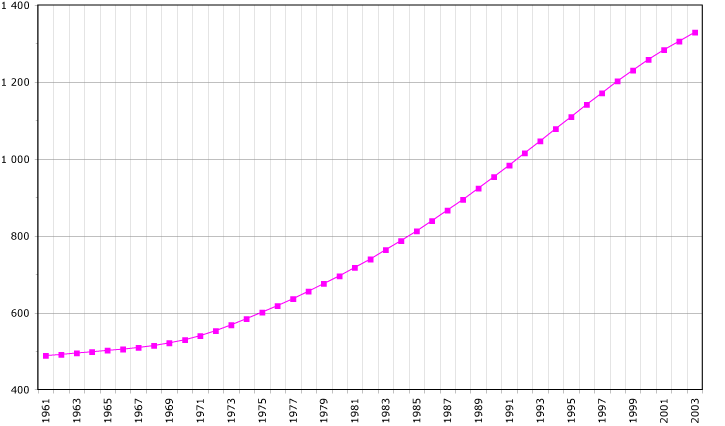
As of 2021-2023 estimates, Gabon has a population of approximately 2.1 to 2.3 million people. Historical and environmental factors led to a population decline between 1900 and 1940.
Key demographic indicators include:
- Population Growth Rate: Around 2.25% (2010-2015 estimate).
- Population Density: Approximately 6.7 to 7.9 persons per square kilometer, one of the lowest in Africa.
- Urbanization Rate: High, with about 87.2% (2015) to 90% of the population living in urban areas, primarily in Libreville, Port-Gentil, and Franceville.
- Age Structure: A youthful population, with a median age around 21.4 years. Approximately 33.29% were estimated to be 0-14 years old (2001).
- Life Expectancy: Around 55 years (2005 estimate), though more recent estimates suggest improvements.
- Total Fertility Rate: Decreased from 5.8 children per woman in 1960 to 4.2 in 2000, and has continued to gradually decline.
The country has attracted migrant workers from neighboring African countries due to its relative economic prosperity.
| Year | Million |
|---|---|
| 1950 | 0.5 |
| 2000 | 1.2 |
| 2021 (UN est.) | 2.3 |
9.2. Ethnic Groups
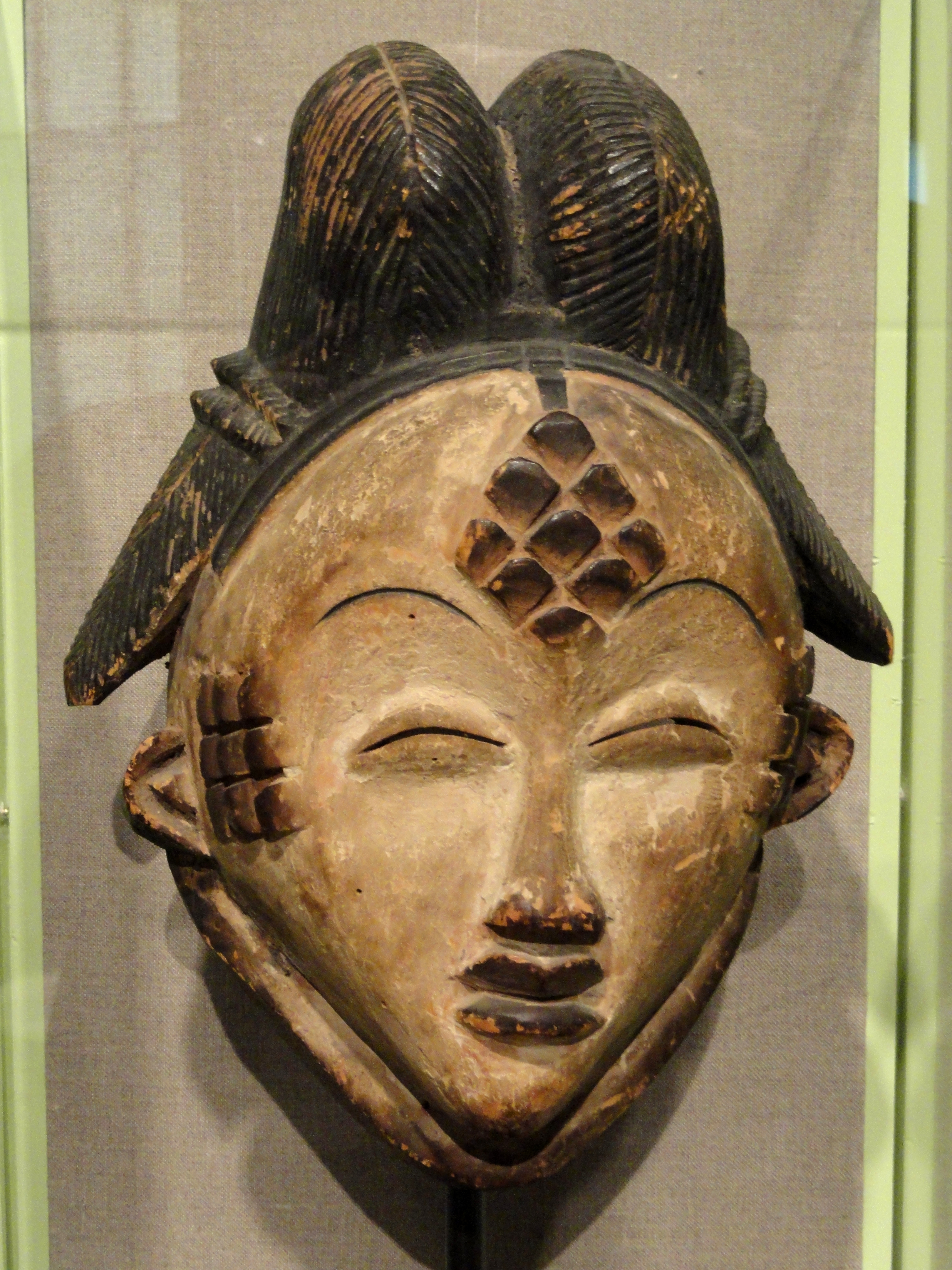
Gabon is ethnically diverse, with at least 40 distinct ethnic groups. Most Gabonese people are of Bantu origin. Major groups include:
- Fang: Traditionally considered the largest group, primarily residing in the northern regions (around 28.6% in 2000).
- Punu-Eshira: Prominent in the south (around 10.2% in 2000 for Punu alone).
- Nzebi-Adouma: Found in the southeast (around 8.9% in 2000 for Nzebi).
- Myènè: A group of related peoples along the coast, including the Mpongwe of Libreville and the Orungu around Port-Gentil.
- Kota (Bakota) and Teke-Mbete: Found in the east and northeast.
- Akélé, Obamba (Mbama), and Duma (Aduma) are other Bantu groups.
Indigenous Pygmy peoples, such as the Baka and Bongo, are among the earliest inhabitants, though their numbers are small. The Baka speak a non-Bantu language.
There is also a significant expatriate community, including over 10,000 French nationals, some of whom hold dual citizenship. Ethnic groups are generally spread throughout the country, leading to interaction and intermarriage, which has helped to reduce ethnic tensions. The status of minority rights, particularly for Pygmy populations, remains a concern for human rights organizations, focusing on issues of land rights, access to services, and political representation.
9.3. Languages
The sole official language of Gabon is French. It is estimated that about 80% of the population can speak French, and for approximately 30% of Libreville residents, French is their native language. French serves as the language of administration, education, media, and commerce, acting as a unifying factor among the diverse ethnic groups.
Numerous indigenous languages are also spoken throughout the country, primarily belonging to the Bantu language family. According to the 2013 census, 63.7% of Gabon's population could speak at least one Gabonese indigenous language (86.3% in rural areas and 60.5% in urban areas).
Some of the prominent indigenous languages include:
- Fang
- Myènè (and its dialects like Mpongwe)
- Punu
- Nzebi
- Teke
- Kota
The Baka language, spoken by the Baka Pygmies, belongs to the Adamawa-Ubangian language family and is distinct from the Bantu languages prevalent in Gabon. Efforts to preserve and promote indigenous languages are limited, with French dominating public life.
9.4. Religion
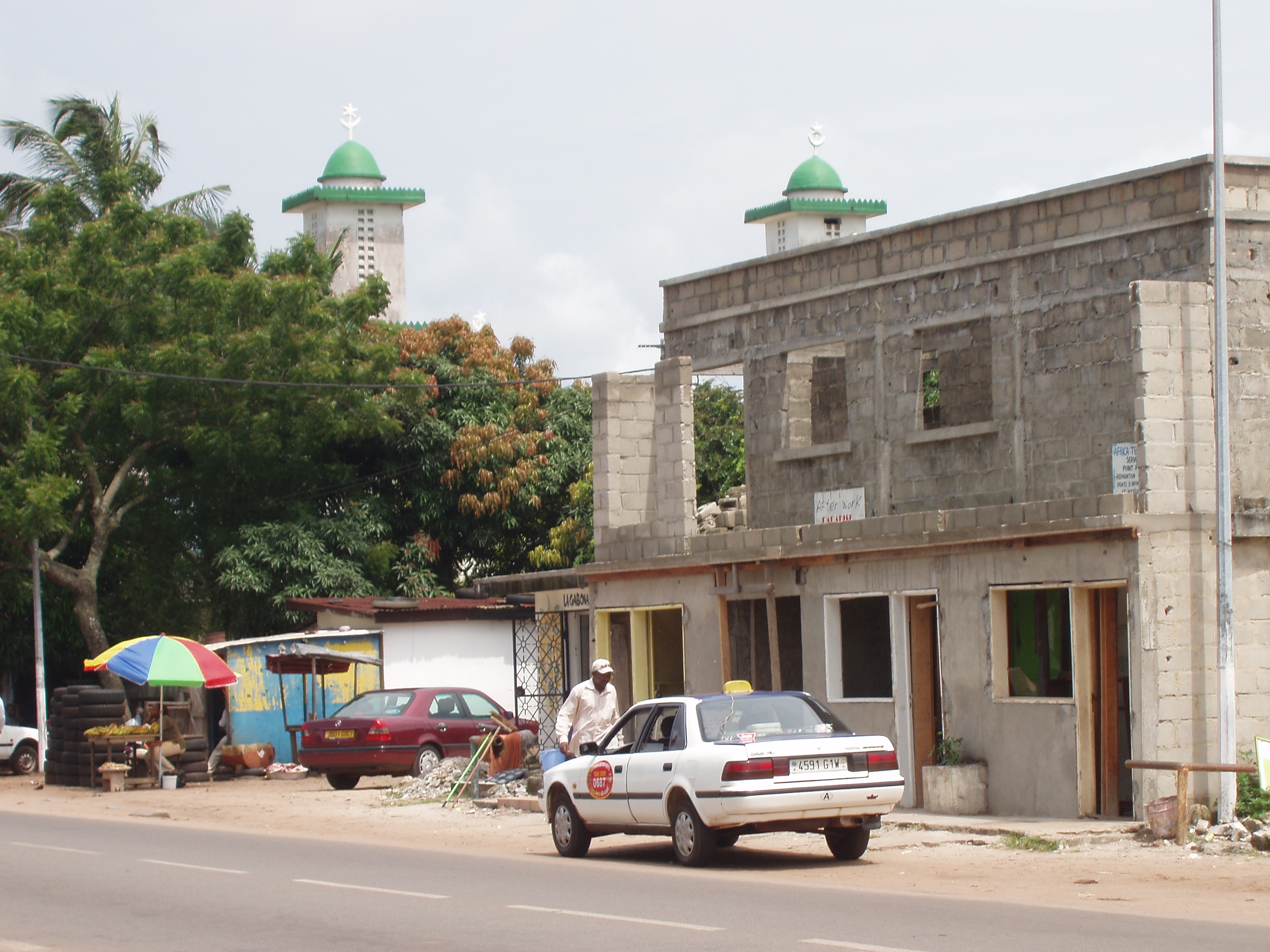
Gabon is a country with religious diversity, and freedom of religion is generally respected. The primary religions are:
- Christianity: This is the predominant religion, practiced by approximately 73% to 79% of the population.
- Roman Catholicism: The largest Christian denomination, accounting for about 45.9% to 53% of the population.
- Protestantism: Various Protestant denominations make up a significant portion, around 13.7%.
- Other Christians (including independent Christian churches) account for about 32.4% according to some classifications that separate them from mainstream Protestantism.
- Islam: Practiced by about 6.4% to 12% of the population. Muslims are mainly Sunni. A notable portion of the Muslim population consists of foreign residents. Former President Omar Bongo converted to Islam in 1973.
- Traditional Indigenous Beliefs: Approximately 10% of the population exclusively practices traditional indigenous religions, such as Bwiti (a spiritual discipline incorporating animism, ancestor worship, and use of the iboga plant). Many Gabonese who identify as Christian or Muslim also incorporate elements of traditional beliefs and practices into their lives (syncretism). Some estimates place exclusive adherents of traditional beliefs much lower, around 0.3% to 3.2%.
- Non-religious/Atheism: Around 5% of the population identifies as non-religious or atheist.
Religious communities generally coexist peacefully. Major Christian and Muslim holidays are recognized as public holidays.
9.5. Education
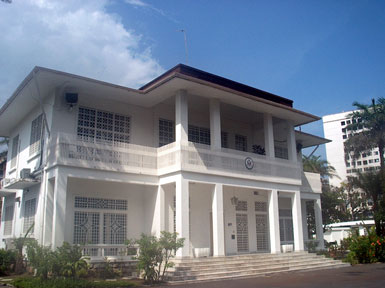
Gabon's education system is largely modeled on the French system and is overseen by two main ministries: the Ministry of Education (responsible for pre-kindergarten through high school) and the Ministry of Higher Education and Innovative Technologies (responsible for universities and professional schools).
- Structure: Education is compulsory for children aged 6 to 16. The system typically includes:
- Pre-primary: Nurseries (CrècheNurseryFrench) and kindergartens (Jardins d'EnfantsKindergartensFrench).
- Primary School (École PrimairePrimary SchoolFrench): 6 years, starting at age 6.
- Secondary School (École SecondaireSecondary SchoolFrench): 7 years, divided into lower and upper secondary levels.
- Higher Education: Includes universities, engineering schools, and business schools. The primary public university is the Omar Bongo University in Libreville, founded in 1970.
- Literacy: The adult literacy rate (ages 15 and above) was estimated at 82% as of 2012.
- Enrollment: The government has historically used oil revenue for school construction and teacher salaries. In 2002, the gross primary enrollment rate was high at 132% (indicating over-age and under-age students), while the net primary enrollment rate was 78% in 2000. In 2001, about 69% of children starting primary school were likely to reach grade 5.
- Challenges: Despite significant investment, the education system faces challenges including:
- Poor management and planning.
- Lack of adequate oversight.
- Shortages of well-qualified teachers, particularly in rural areas.
- Overcrowded classrooms.
- Declining maintenance of school infrastructure and issues with consistent teacher salary payments.
- Disparities in access and quality between urban and rural areas.
Ensuring quality education and aligning it with the country's development needs, especially in vocational and technical fields, remain priorities.
9.6. Health
Gabon's healthcare system includes both public and private facilities. The country has one of the better healthcare infrastructures in Sub-Saharan Africa, partly due to its oil wealth, but access and quality can vary.
- Healthcare Facilities: The Albert Schweitzer Hospital, established in 1913 in Lambaréné by Albert Schweitzer, is a historically significant private institution. By 1985, Gabon had 28 hospitals, 87 medical centers, and 312 infirmaries/dispensaries. As of 2004, there were an estimated 29 physicians per 100,000 people, and approximately 90% of the population had access to healthcare services. Gabon has a domestic pharmaceutical factory in Libreville.
- Major Health Issues: Common diseases include malaria, HIV/AIDS, tuberculosis, sleeping sickness, filariasis, and intestinal worms.
- HIV/AIDS: The prevalence rate among adults (ages 15-49) was estimated at 5.2%. As of 2009, around 46,000 people were living with HIV/AIDS, with an estimated 2,400 deaths from AIDS in that year (down from 3,000 in 2003).
- Key Health Indicators:
- Infant Mortality Rate: Was 55.35 per 1,000 live births in 2005.
- Maternal Mortality Rate: Was 520 per 100,000 live births as of 1998.
- Life Expectancy: Around 55.02 years in 2005. More recent estimates show improvements.
- Access to Water and Sanitation: In 2000, 70% of the population had access to safe drinking water, and 21% had adequate sanitation.
- Immunization: Rates for children under one were high for tuberculosis (97%) and polio (65%) in the early 2000s. DPT and measles immunization rates were lower (37% and 56% respectively).
- Global Hunger Index (GHI): In the 2024 GHI, Gabon ranked 78th out of 127 countries, with a score of 17.4, indicating a moderate level of hunger.
Challenges in the health sector include ensuring equitable access to care, particularly for rural and vulnerable populations, strengthening health systems, and addressing the burden of both communicable and non-communicable diseases.
10. Culture
Gabonese culture is a rich tapestry woven from the traditions of its diverse ethnic groups, influenced by French colonial history, and evolving with modern global trends. Oral traditions have historically played a vital role in preserving cultural heritage.
10.1. Traditions and Arts
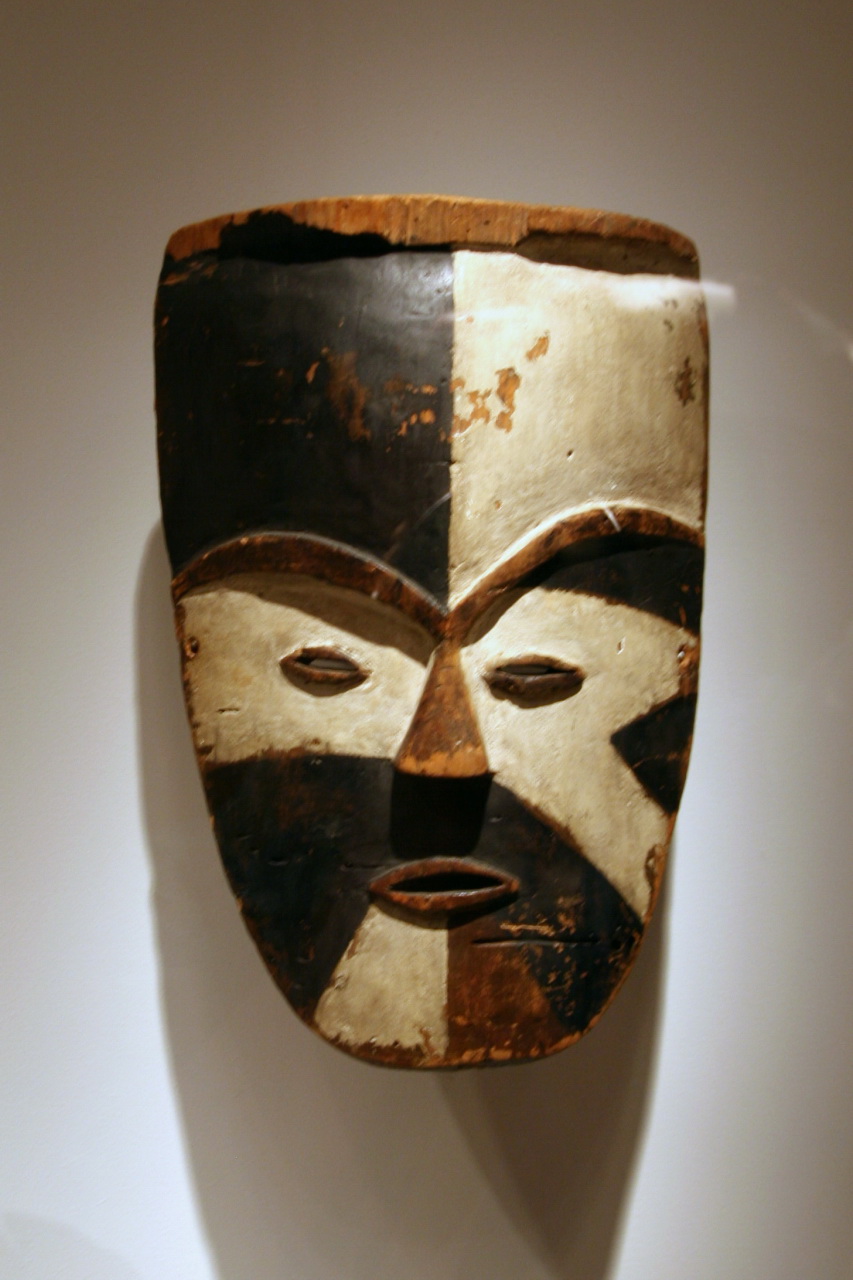
Gabon's cultural heritage is deeply rooted in oral traditions, including folklore, mythology, and epic poems. "Raconteurs" (storytellers) are custodians of these traditions, working to keep practices like the Mvett (an epic narrative performance) among the Fang (MvettMvett (epic narrative performance)Fang) and the Ingwala among the Nzebi alive.
Masks and Sculptures: Gabon is particularly renowned for its sophisticated traditional mask art and sculptures, which hold significant spiritual and ceremonial importance. Each ethnic group has its distinctive styles:
- The Fang people are famous for their n'goltang (or ngontang) helmet masks (n'goltangn'goltang (helmet mask)Fang), often with multiple faces, and their byeri reliquary figures (byeribyeri (reliquary figure)Fang), which guarded ancestral remains.
- The Kota (Bakota) are known for their stylized mbulu ngulu reliquary guardian figures (mbulu ngulumbulu ngulu (reliquary guardian figure)kqs), often covered with brass or copper.
- The Punu and Lumbo peoples create iconic white-faced masks (e.g., mukudj (mukudjmukudj (mask)puj) or okuyi (okuyiokuyi (mask)luj) masks), representing idealized female beauty and spirits of the dead, used in dances on stilts.
- Other groups like the Tsogo, Aduma, and Myènè also have distinctive carving traditions.
These artworks, traditionally crafted from local woods and other materials, play crucial roles in ceremonies related to initiation, marriage, birth, funerals, and social regulation. Many Gabonese masks are highly valued in international art collections.
10.2. Music
Gabonese music encompasses a variety of folk styles and contemporary genres.
- Traditional Music: Characterized by complex rhythms and call-and-response vocals. Important traditional instruments include:
- Balafon (a type of xylophone)
- Ngombi (a type of harp or lute)
- Obala (a type of drum or percussion instrument)
- Various types of drums.
- Contemporary Music: Modern Gabonese musicians have blended traditional sounds with genres like Makossa and Soukous from neighboring countries, as well as rumba, hip hop, and rock.
- Notable Gabonese musicians include Patience Dabany (a pop singer and former First Lady), Oliver N'Goma (known for Afro-zouk and rumba), Pierre Akendengué (a guitarist and composer blending folk with modern styles), and Annie-Flore Batchiellilys (a singer known for her powerful vocals and performances). Georges Oyendze, La Rose Mbadou, and Sylvain Avara are also recognized artists.
10.3. Literature
Gabonese literature is part of the broader Francophone literature of Africa. As a country with a strong oral tradition, written literature developed more prominently with the spread of literacy in the 20th and 21st centuries.
Key authors and trends include:
- Early writers often focused on themes of colonialism, cultural identity, and the transition to modernity.
- Contemporary Gabonese writers explore a range of subjects, including social issues, politics, and personal experience.
- Notable female writers include Angèle Rawiri (author of several influential novels), Chantal Magalie Mbazoo-Kassa, and Edna Merey-Apinda. Angèle Rawiri, daughter of politician Georges Rawiri, is particularly recognized for her contributions.
- Janis Otsiemi is a well-known contemporary author, particularly in the genre of crime fiction.
The development of Gabonese literature continues, with new voices emerging.
10.4. Mass Media
The mass media landscape in Gabon includes print, broadcast, and online platforms.
- Broadcasting: Radio Télévision Gabonaise (RTG) is the state-owned national broadcaster, providing radio and television services in French and indigenous languages. Color television broadcasts are available in some cities. Africa No. 1, a commercial radio station with French and Gabonese government participation, began operations in 1981 and has a wide reach in Africa. In 2004, there were 2 government-operated radio stations and 7 private ones; 2 government television stations and 4 private ones.
- Newspapers: The national press service is the Gabonese Press Agency, which publishes the daily Gabon-Matin. L'Union, a government-controlled daily newspaper based in Libreville, had an average daily circulation of 40,000 in 2002. The Ministry of Communications publishes the weekly Gabon d'Aujourdhui. Several privately owned periodicals exist, some independent and others affiliated with political parties, though they often face financial constraints.
- Internet: Internet access has been growing. In 2003, an estimated 26 out of every 1,000 people had access. The country code top-level domain is .ga.
- Freedom of the Press: While the constitution provides for free speech and a free press, the government has been known to exert influence, and media outlets critical of the government have faced legal challenges or pressure. Reporters Without Borders and other organizations have raised concerns about restrictions on press freedom and self-censorship.
10.5. Cuisine
Gabonese cuisine reflects the country's tropical environment and is influenced by French culinary traditions, particularly in urban areas.
- Staple Foods: Common staples include cassava, plantains, yams, and rice. These are often served with sauces made from vegetables, fish, or meat.
- Proteins: Fish and seafood are abundant along the coast and rivers. Chicken is also popular. Bushmeat (wild game such as monkey, pangolin, or porcupine) is consumed in some regions, though there are conservation concerns associated with its trade.
- Signature Dishes:
- Nyembwe chicken (Poulet Nyembwe or Poulet Moambé): Considered a national dish, this is chicken cooked in a sauce made from palm nut pulp (nyembwe).
- Chicken muamba: A broader Central African dish also popular in Gabon, typically chicken stewed with palm oil or palm nut sauce, often with vegetables and spices like chili, garlic, and tomato.
- Coupé-coupé: Grilled or smoked meat, often served with plantains or manioc.
- Ingredients: Tropical fruits like mangoes, papayas, and pineapples are widely available. Vegetables include okra, tomatoes, and leafy greens.
French influence is evident in the availability of bread (baguettes) and pastries, especially in cities.
10.6. Sports
Sports are an important part of Gabonese culture, with football (soccer) being the most popular.
- Football (Soccer): The Gabon national football team, nicknamed "Les PanthèresThe PanthersFrench", has represented the nation since 1962. While they have not qualified for the FIFA World Cup, they have participated in the Africa Cup of Nations (AFCON) multiple times. Gabon co-hosted the 2012 AFCON with Equatorial Guinea and was the sole host of the 2017 tournament. The domestic league is the Gabon Championnat National D1. Pierre-Emerick Aubameyang is Gabon's most internationally renowned footballer, having played for top European clubs.
- Olympics: Gabon first competed in the Summer Olympics in 1972 and has participated in most Games since 1984. The country won its first and only Olympic medal to date at the 2012 Summer Olympics in London, where Anthony Obame secured a silver medal in taekwondo (men's +80 kg category).
- Basketball: The Gabon national basketball team, also nicknamed Les Panthères, has competed in continental championships like AfroBasket, finishing 8th in 2015. Chris Silva is a notable Gabonese basketball player who has played in the NBA and the Israeli Basketball Premier League.
- Other Sports:
- Cycling: Since 2006, Gabon has hosted La Tropicale Amissa Bongo, a professional week-long road cycling race that attracts both African and European teams.
- Recreational fishing: Gabon is considered one of the world's best destinations for catching Atlantic tarpon.
Athletics and other sports are also practiced, though with less prominence than football.
10.7. Festivals and Public Holidays
Gabon observes a number of national public holidays, which include both secular and religious celebrations.
Major National Public Holidays:
- New Year's Day (January 1)
- Easter Monday (variable date)
- Labour Day/May Day (May 1)
- Pentecost Monday (variable date)
- Assumption Day (August 15)
- Independence Day (August 17): Commemorates Gabon's independence from France in 1960. This is a major national celebration with parades and festivities.
- All Saints' Day (November 1)
- Christmas Day (December 25)
Muslim Public Holidays (dates vary according to the Islamic lunar calendar):
- Eid al-Fitr (Al Fytiri): Marks the end of Ramadan.
- Eid al-Adha (Aïd el-Kebir): The Feast of Sacrifice.
In addition to these official holidays, various ethnic groups hold traditional festivals and ceremonies throughout the year, often related to harvests, initiations, or ancestral veneration. These local festivals showcase traditional music, dance, mask performances, and rituals, playing an important role in maintaining cultural heritage, though they are not typically national public holidays.